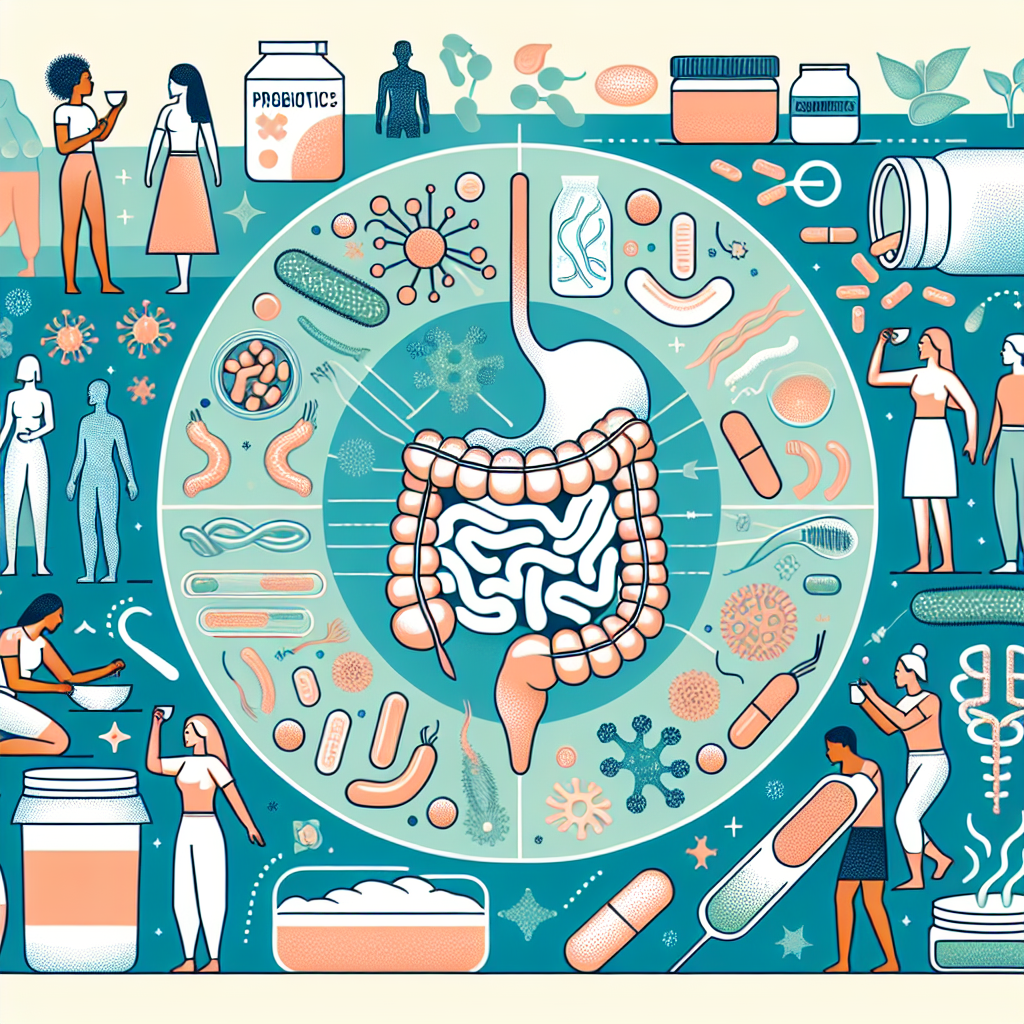The Role of Probiotics in Gut Health
Introduction
In recent years, the term “probiotics” has become a buzzword in the realms of health and wellness. While some might dismiss it as a trend, the science behind probiotics and their impact on gut health is robust and compelling. Probiotics, often described as “good” or “friendly” bacteria, play a crucial role in maintaining the delicate balance of our gut microbiome. This balance is essential for not only digestive health but also for overall well-being, including immune function, mental health, and even skin condition.
What are Probiotics?
Probiotics are live microorganisms, primarily bacteria and yeasts, that provide a health benefit when consumed in adequate amounts. They are naturally found in various fermented foods like yogurt, kefir, sauerkraut, and kimchi, as well as in dietary supplements. The most commonly studied and used probiotics include strains of Lactobacillus and Bifidobacterium, though many other strains exist, each with its unique benefits.
The Gut Microbiome
The human gut is home to trillions of microorganisms, collectively known as the gut microbiome. This complex ecosystem includes bacteria, viruses, fungi, and other microbes that coexist in a symbiotic relationship with the host. A healthy gut microbiome is balanced, with a diverse array of microorganisms performing various roles, from aiding digestion to synthesizing vitamins and protecting against pathogens.
How Probiotics Benefit Gut Health
1. Restoring Microbial Balance
One of the primary functions of probiotics is to help maintain or restore the balance of the gut microbiome. Factors such as poor diet, stress, antibiotics, and illness can disrupt this balance, leading to an overgrowth of harmful bacteria. Probiotics can outcompete these harmful bacteria, helping to restore a healthy microbial environment.
2. Enhancing Digestive Health
Probiotics aid in the digestion of food and the absorption of nutrients. They help break down complex carbohydrates, proteins, and fats, making it easier for the body to assimilate essential nutrients. Moreover, some probiotics can produce short-chain fatty acids like butyrate, which serve as an energy source for the cells lining the colon and support a healthy gut barrier.
3. Boosting Immune Function
A significant portion of the immune system resides in the gut. Probiotics can modulate immune responses, enhancing the body’s defense mechanisms. They stimulate the production of antibodies and influence the activity of immune cells like macrophages and T lymphocytes, thereby boosting immunity and reducing the risk of infections.
4. Reducing Inflammation
Chronic inflammation in the gut is associated with various conditions, including inflammatory bowel disease (IBD), irritable bowel syndrome (IBS), and even colorectal cancer. Probiotics can help reduce inflammation by modulating the production of pro-inflammatory cytokines and promoting anti-inflammatory pathways.
5. Mental Health and the Gut-Brain Axis
The gut-brain axis is a bidirectional communication system between the gut and the brain. Emerging research suggests that probiotics can influence mental health by affecting the gut microbiome. They can produce neurotransmitters like serotonin and gamma-aminobutyric acid (GABA), which play a role in mood regulation. Some studies have shown that probiotics can reduce symptoms of anxiety, depression, and stress.
Choosing the Right Probiotic
Not all probiotics are created equal, and their efficacy can depend on various factors, including the specific strain, dose, and individual health condition. Here are some tips for choosing the right probiotic:
1. Strain Specificity: Different strains have different effects. For instance, Lactobacillus rhamnosus GG is well-studied for its role in reducing diarrhea, while Bifidobacterium longum is known for its anti-inflammatory properties.
2. CFU Count: The potency of a probiotic is measured in colony-forming units (CFUs). For general health, a product with 1-10 billion CFUs per serving is usually sufficient, but higher doses may be needed for specific conditions.
3. Delivery Method: Probiotics can be found in various forms, including capsules, powders, and fermented foods. Choose a delivery method that suits your lifestyle and ensures the viability of the probiotics.
4. Storage and Shelf Life: Some probiotics require refrigeration to maintain their potency, while others are shelf-stable. Always check the storage recommendations and expiration date.
FAQs about Probiotics and Gut Health
Q1. Can I get enough probiotics from food alone?
While fermented foods like yogurt, kefir, and sauerkraut are excellent sources of probiotics, they might not provide the specific strains or doses required for certain health benefits. In such cases, a probiotic supplement can be beneficial.
Q2. Are probiotics safe for everyone?
For most people, probiotics are safe and well-tolerated. However, individuals with compromised immune systems or serious health conditions should consult a healthcare provider before starting a probiotic regimen.
Q3. How long does it take to see the benefits of probiotics?
The time frame can vary depending on the individual and the health condition being addressed. Some people may notice improvements within a few days, while for others, it might take several weeks.
Q4. Can I take probiotics with antibiotics?
Yes, taking probiotics during and after antibiotic treatment can help replenish the beneficial bacteria that antibiotics may deplete. However, it’s advisable to take them a few hours apart to maximize their effectiveness.
Q5. Do probiotics have any side effects?
Most people do not experience side effects, but some may have minor digestive issues like gas or bloating initially. These symptoms usually subside as the body adjusts to the probiotics.
Conclusion
Probiotics play a pivotal role in maintaining and enhancing gut health. By restoring microbial balance, aiding digestion, boosting immunity, reducing inflammation, and potentially improving mental health, probiotics offer a multi-faceted approach to well-being. Whether through food or supplements, incorporating probiotics into your daily routine can have lasting positive effects on your health. Always consult with a healthcare provider to determine the best probiotic strategy for your individual needs.

